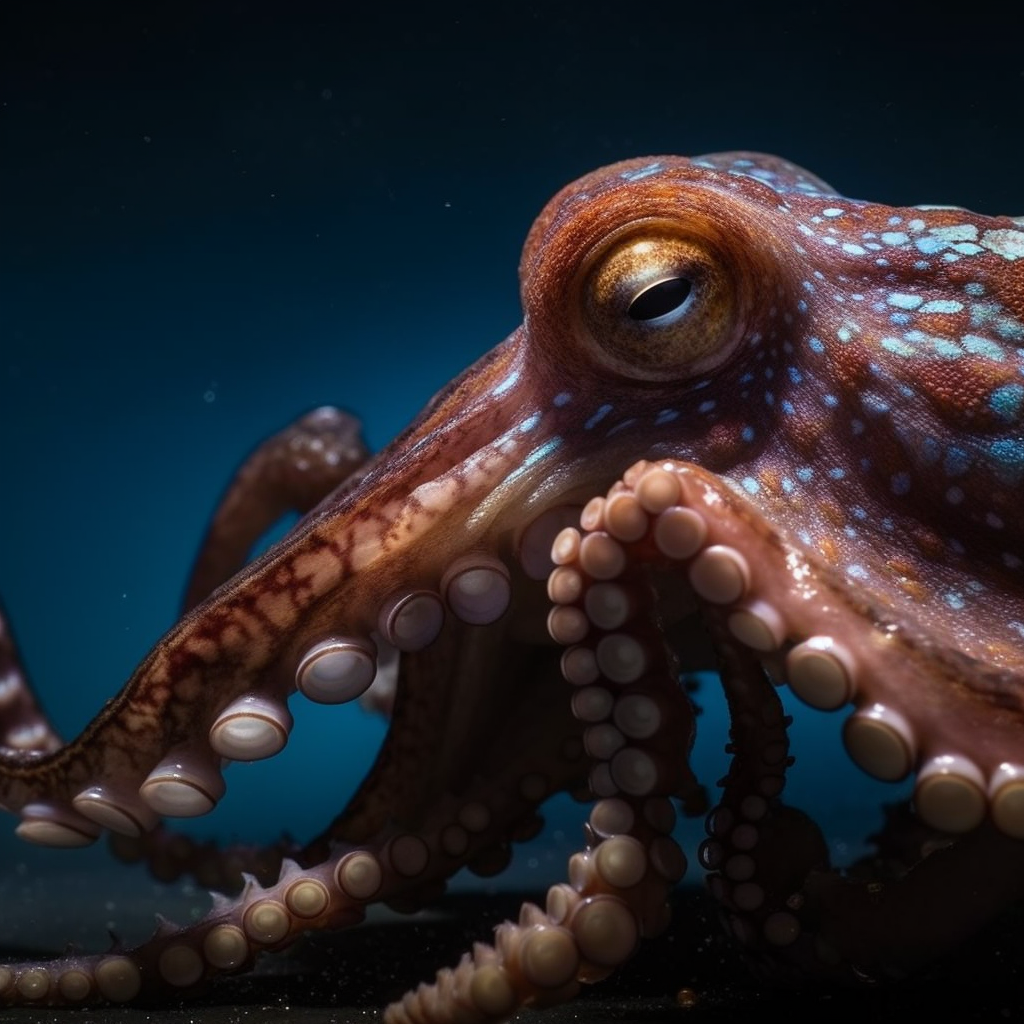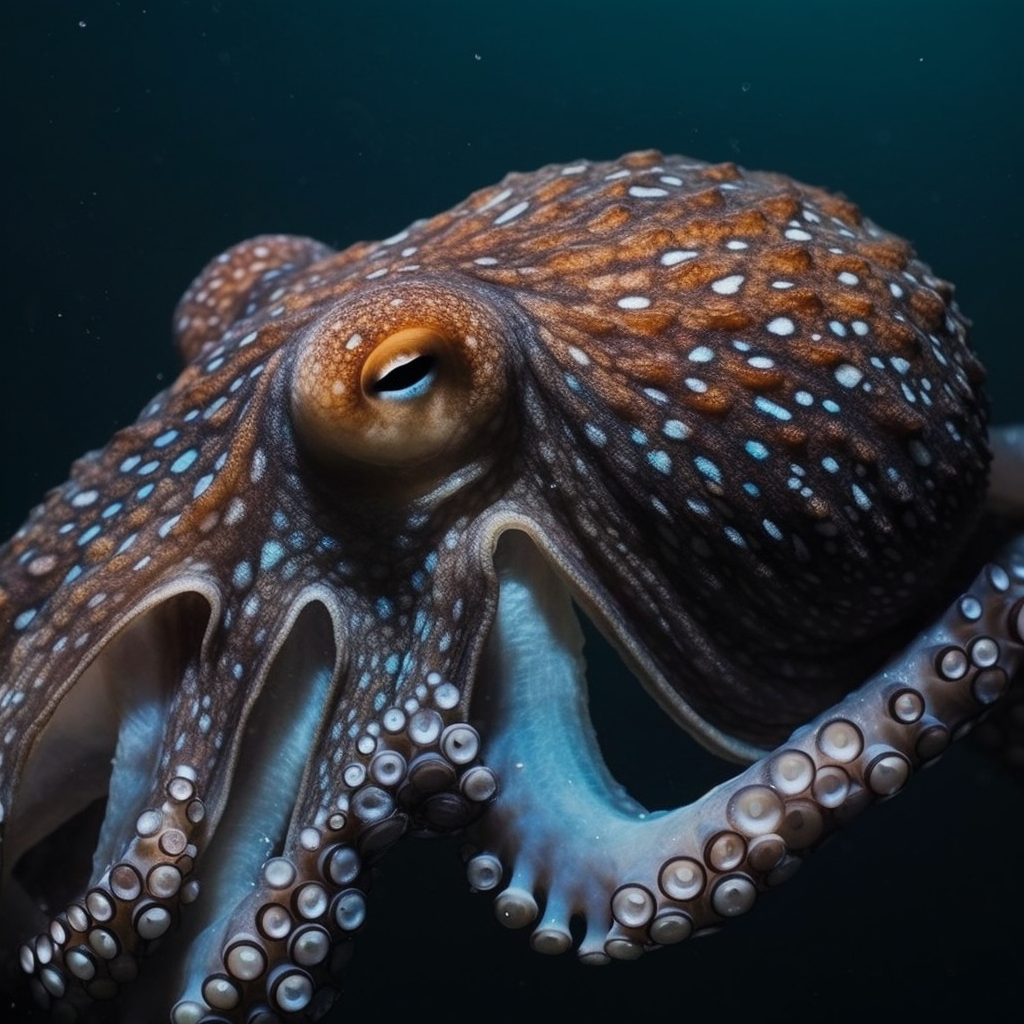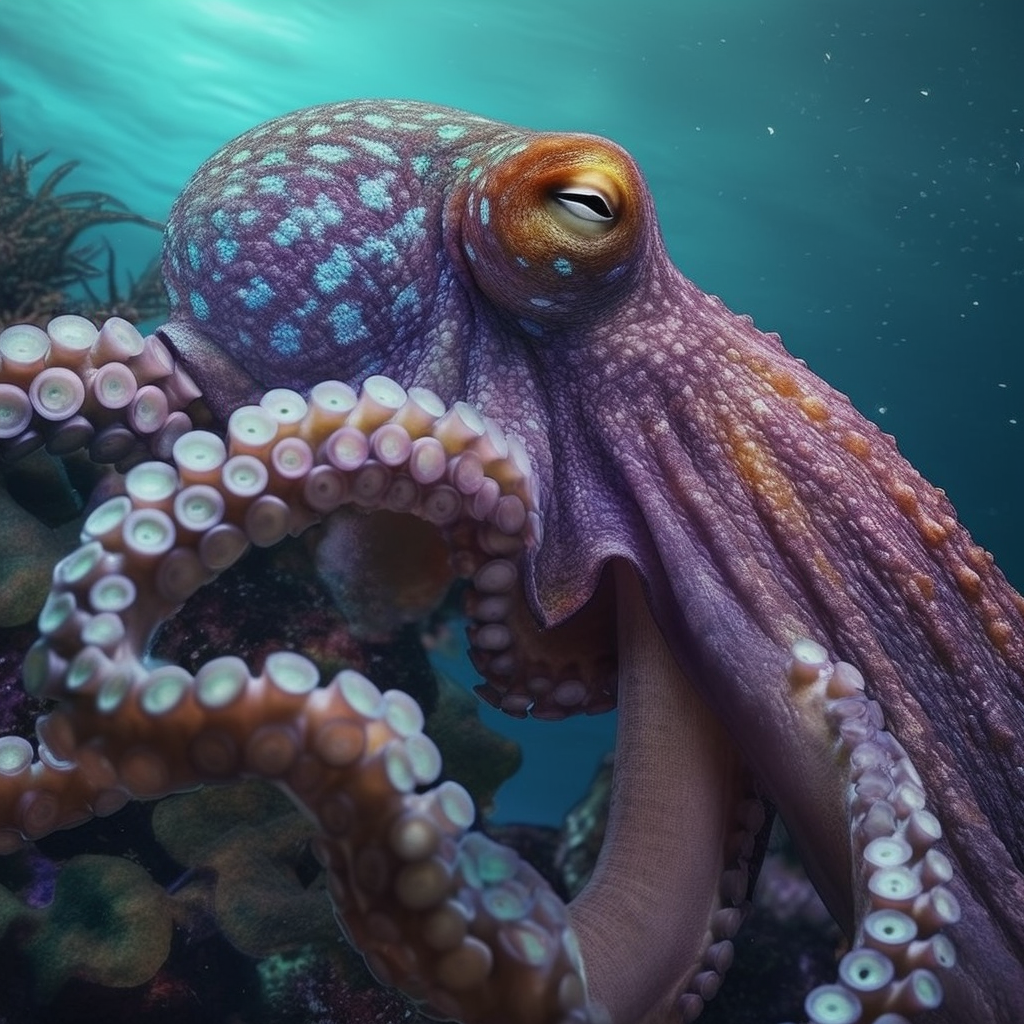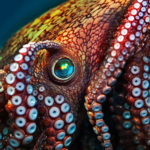Octopuses are fascinating creatures that have captured the curiosity of scientists and the general public alike. These intelligent and enigmatic animals have a complex range of behaviors and abilities, including the ability to change color and shape, solve puzzles, and even use tools. But what about their emotions? Do octopuses experience emotions like humans do? This article explores the intriguing world of octopus emotions, shedding light on their emotional lives and providing insights into the fascinating inner world of these remarkable creatures. So, let’s dive in and uncover the depths of octopus emotions.
Key Takeaways
- Octopuses are highly intelligent creatures with complex emotions.
- They display a wide range of emotions, including curiosity, fear, and even playfulness.
- Octopuses have been observed to exhibit problem-solving skills and can learn from their experiences.
- Their ability to change color and shape also reflects their emotional state.
- Understanding octopus emotions can help us better appreciate and protect these fascinating creatures.
The Emotional Intelligence of Octopuses

Octopuses, with their unique appearance and fascinating behavior, have long captivated the curiosity of scientists and marine enthusiasts alike. While we may not immediately associate emotions with these intelligent creatures, recent research suggests that octopuses possess a level of emotional intelligence that rivals some of the most complex species on Earth.
Emotional Cognition in Octopuses
Emotional cognition refers to an animal’s ability to perceive, understand, and respond to emotions. In the case of octopuses, studies have shown that they exhibit a wide range of emotional responses, indicating a sophisticated level of emotional cognition. These responses include behaviors associated with fear, happiness, anxiety, and even empathy.
Octopus Sentience and Consciousness
To understand the emotional intelligence of octopuses, it is essential to recognize their sentience and consciousness. Sentience refers to the ability to perceive and experience sensations, while consciousness refers to self-awareness and the ability to have subjective experiences. Octopuses have a highly developed nervous system, with a complex brain structure that allows them to process information and exhibit behaviors indicative of sentience and consciousness.
Octopus Behavior and Social Interactions
Observations of octopus behavior in the wild and in captivity have revealed a remarkable range of social interactions. Octopuses have been observed engaging in complex mating rituals, displaying territorial behavior, and even engaging in playful interactions with other octopuses. These behaviors suggest a level of social intelligence and emotional awareness that goes beyond mere instinct.
Octopus Stress Response and Pain Perception
Like humans and other animals, octopuses also experience stress and pain. Research has shown that octopuses exhibit physiological responses to stressful situations, such as changes in heart rate and coloration. Furthermore, experiments have demonstrated that octopuses are capable of perceiving and responding to painful stimuli. These findings indicate that octopuses possess a sophisticated nervous system that allows them to experience and respond to both positive and negative emotions.
Octopus Personality Traits and Temperament
Just as humans and other animals have unique personality traits, octopuses also display individual differences in their behavior and temperament. Some octopuses may be more curious and exploratory, while others may be more cautious and reserved. These variations in personality suggest that octopuses possess a level of emotional complexity that extends beyond basic instinctual responses.
Octopus Neurobiology and Psychology
To understand the emotional intelligence of octopuses, scientists have delved into their neurobiology and psychology. Studies have revealed that octopuses have a highly developed nervous system, with specialized brain regions responsible for processing emotions. Additionally, researchers have found evidence of neurotransmitters associated with emotional regulation, further supporting the notion that octopuses possess a sophisticated emotional intelligence.
In conclusion, octopuses are not just fascinating creatures with remarkable physical abilities, but they also possess a level of emotional intelligence that is increasingly being recognized by the scientific community. Their ability to perceive and respond to emotions, engage in complex social interactions, and exhibit individual personality traits highlights the depth of their emotional lives. As we continue to study and learn more about these incredible marine animals, it becomes clear that octopuses are not so different from us when it comes to experiencing and understanding emotions.
The Expression of Emotions in Octopuses

Octopuses, with their fascinating intelligence and complex behaviors, have long captivated the curiosity of scientists and the general public alike. One aspect of octopus behavior that has garnered particular interest is their ability to express emotions. While it is challenging to definitively determine the emotional experiences of these enigmatic creatures, researchers have made significant strides in understanding the emotional lives of octopuses.
Emotional Cognition in Octopuses
Octopuses exhibit a remarkable level of emotional cognition, which refers to their ability to perceive, process, and respond to emotions. These highly intelligent cephalopods possess a sophisticated neural network that allows them to experience and express a range of emotions. Studies have shown that octopuses can recognize and respond to various emotional stimuli, including fear, happiness, and even pain.
Octopus Sentience and Emotional Intelligence
The question of whether octopuses are sentient beings capable of experiencing emotions has been a subject of debate among scientists. Sentience refers to the capacity to have subjective experiences, such as emotions and sensations. While it is challenging to measure sentience directly, evidence suggests that octopuses possess a high degree of emotional intelligence.
Researchers have observed octopuses displaying behaviors that indicate emotional responses. For example, when exposed to stressful situations, such as being confined or threatened, octopuses exhibit signs of distress, such as color changes, increased heart rate, and altered behavior. These responses indicate that octopuses may experience emotions similar to those felt by other sentient beings.
Octopus Behavior and Social Interactions
Octopuses are not solitary creatures; they engage in complex social interactions with conspecifics and other marine animals. These interactions provide opportunities for the expression of emotions and the development of social bonds. Octopuses have been observed engaging in playful behaviors, which may indicate a sense of happiness or joy. They also exhibit territorial behaviors, suggesting a level of aggression or assertiveness.
Furthermore, octopuses can display empathy towards other individuals. In experiments, they have shown the ability to recognize and respond to the emotional states of their peers. This empathetic behavior highlights the complexity of octopus emotions and their capacity for social interactions.
Octopus Neurobiology and Emotional Responses
Understanding the neurobiology of octopuses is crucial in unraveling the mechanisms behind their emotional responses. Octopuses have a decentralized nervous system, with a significant portion of their neural processing occurring in their arms. This unique neurobiology allows for a rapid and coordinated response to emotional stimuli.
Research has shown that octopuses possess specialized brain structures associated with emotional processing. These structures, such as the vertical lobe and the optic gland, play a role in regulating emotional responses and behavior. By studying the neurobiology of octopuses, scientists hope to gain further insights into the intricacies of their emotional lives.
Octopus Temperament and Personality Traits
Just like humans and other animals, octopuses exhibit individual differences in temperament and personality traits. Some octopuses may be more curious and exploratory, while others may be more cautious and reserved. These variations in temperament can influence how octopuses perceive and respond to emotional stimuli.
Researchers have found that octopuses can display consistent behavioral patterns over time, indicating the presence of personality traits. These traits may influence an octopus‘s emotional responses and interactions with its environment. Understanding the individual differences in octopus temperament can provide valuable insights into their emotional experiences.
In conclusion, while the study of octopus emotions is still in its early stages, researchers have made significant progress in unraveling the complex emotional lives of these remarkable creatures. Octopuses exhibit emotional cognition, display signs of sentience, engage in social interactions, and possess a unique neurobiology that underlies their emotional responses. By delving deeper into the world of octopus emotions, scientists hope to gain a better understanding of the rich inner lives of these intelligent marine animals.
The Emotional Spectrum of Octopuses
Octopuses are fascinating creatures that inhabit the depths of the ocean. These cephalopods possess a remarkable level of intelligence and exhibit complex behaviors that hint at their emotional lives. While it is challenging to fully understand the intricacies of octopus emotions, scientists have made significant progress in unraveling this enigma.
Emotional Cognition in Octopuses
Research has shown that octopuses possess a high degree of emotional cognition. They are capable of recognizing and responding to various stimuli in their environment, indicating a level of awareness and sensitivity. Octopuses can distinguish between different objects, remember past experiences, and even solve puzzles to obtain rewards. These cognitive abilities suggest that they have a rich emotional world.
Octopus Sentience and Consciousness
The question of whether octopuses are sentient beings has long intrigued scientists. Sentience refers to the ability to experience sensations and emotions. While it is challenging to measure sentience directly, studies have provided compelling evidence that octopuses possess a form of consciousness. They exhibit behaviors that indicate self-awareness and the ability to perceive and respond to their surroundings.
Octopus Social Behavior
Contrary to the common perception of octopuses as solitary creatures, recent studies have revealed that they engage in complex social interactions. Octopuses have been observed communicating with each other through a range of visual displays, body postures, and color changes. These interactions suggest the presence of social bonds and a potential for social emotions such as empathy and cooperation.
Octopus Stress Response and Emotional Resilience
Like humans and other animals, octopuses experience stress. They have a sophisticated stress response system that helps them cope with challenging situations. When faced with stressors, octopuses release stress hormones and exhibit behavioral changes. However, they also display remarkable resilience, adapting to new environments and recovering from stressful events. This ability to bounce back indicates a level of emotional flexibility and coping mechanisms.
Octopus Emotional Intelligence
Octopuses demonstrate a remarkable level of emotional intelligence. They can recognize and respond to the emotions of other individuals, both within their species and across different species. This emotional intelligence allows them to navigate complex social dynamics and make decisions based on the emotional states of others. It also suggests a capacity for empathy and understanding.
Octopus Pain Perception and Emotional Responses
One of the most debated aspects of octopus emotions is their perception of pain. While it is challenging to determine definitively whether octopuses experience pain in the same way humans do, studies have shown that they possess a complex nervous system capable of processing sensory information. Octopuses exhibit protective behaviors when injured and display changes in behavior and physiology that indicate discomfort. These responses suggest the possibility of pain perception and an emotional response to it.
Octopus Mood and Personality Traits
Octopuses are not only capable of experiencing emotions but also exhibit individual differences in their mood and personality traits. Some octopuses may be more outgoing and curious, while others may be more cautious and reserved. These variations in temperament suggest that octopuses, like humans, have unique personalities that influence their emotional experiences and behaviors.
In conclusion, octopuses possess a rich emotional spectrum that includes cognitive abilities, social behavior, stress response, emotional intelligence, pain perception, and individual personality traits. While our understanding of octopus emotions is still evolving, it is clear that these remarkable creatures experience a range of emotions and exhibit complex behaviors that hint at the depth of their emotional lives. Further research is needed to delve deeper into the intricacies of octopus emotions and gain a more comprehensive understanding of these fascinating creatures.
The Self-Destructive Behavior of Octopuses: An Emotional Response?
Octopuses are fascinating creatures that have captivated the curiosity of scientists and nature enthusiasts alike. With their remarkable intelligence and complex behaviors, these cephalopods have proven to be more than just simple marine animals. One intriguing aspect of octopus behavior is their potential for emotional responses. While emotions are often associated with mammals, recent research suggests that octopuses may also experience a range of emotions, including stress, fear, and even happiness.
Emotional Cognition in Octopuses
Octopuses possess a highly developed nervous system, which allows them to exhibit a level of cognitive complexity that is unparalleled among invertebrates. This complexity extends to their emotional lives as well. Studies have shown that octopuses can display behaviors indicative of emotional states, such as changes in coloration, body posture, and movement patterns.
Octopus Sentience and Emotional Awareness
The concept of sentience refers to the ability to perceive and experience subjective states. While it is challenging to definitively determine the level of consciousness in octopuses, their sophisticated behaviors and problem-solving abilities suggest a high degree of cognitive awareness. This awareness likely extends to their emotional experiences as well.
Octopus Social Behavior and Emotional Bonds
Contrary to their reputation as solitary creatures, octopuses can exhibit complex social behaviors. Some species of octopuses engage in social interactions, including mating rituals and territorial disputes. These social interactions indicate the potential for the formation of emotional bonds and social hierarchies among octopuses.
Octopus Stress Response and Fear
Like humans and other animals, octopuses can experience stress and fear. When faced with a perceived threat, octopuses may exhibit defensive behaviors, such as ink release, camouflage, or fleeing. These responses suggest that octopuses have the ability to recognize and respond to potentially dangerous situations, indicating a level of emotional awareness.
Octopus Happiness and Positive Emotions
While it is challenging to measure happiness in animals, researchers have observed behaviors in octopuses that suggest the experience of positive emotions. For example, octopuses have been observed engaging in play-like behaviors, such as manipulating objects or interacting with their environment in a seemingly joyful manner. These behaviors indicate that octopuses may experience moments of happiness and pleasure.
Octopus Pain Perception and Anxiety
Octopuses possess a complex nervous system that allows them to perceive and respond to stimuli, including potentially painful ones. Research has shown that octopuses can exhibit avoidance behaviors when exposed to noxious stimuli, indicating a capacity for pain perception. Additionally, octopuses may also experience anxiety, as evidenced by changes in behavior and body patterns when placed in stressful situations.
Octopus Emotional Intelligence and Neurobiology
The emotional lives of octopuses are intricately linked to their neurobiology. Studies have revealed that octopuses have a highly developed brain, with a large number of neurons distributed throughout their bodies. This neural complexity likely contributes to their emotional intelligence and the range of emotions they can experience.
Octopus Psychology and Empathy
While empathy is often associated with mammals, recent research suggests that octopuses may also possess a degree of empathetic behavior. In experiments, octopuses have been observed to show concern for distressed conspecifics, displaying behaviors that indicate an understanding of the emotional state of others. This empathetic behavior suggests a level of psychological complexity in octopuses.
Octopus Temperament and Personality Traits
Just like humans and other animals, octopuses can exhibit individual differences in temperament and personality traits. Some octopuses may be more shy and cautious, while others may be bold and adventurous. These variations in temperament and personality further support the notion that octopuses have complex emotional lives.
In conclusion, while the emotional lives of octopuses are still not fully understood, there is growing evidence to suggest that these fascinating creatures experience a range of emotions. From stress and fear to happiness and empathy, octopuses exhibit behaviors that indicate a level of emotional awareness and complexity. Further research is needed to delve deeper into the emotional lives of octopuses and unravel the mysteries of their fascinating minds.
The Emotional Symbolism of Octopuses in Popular Culture

Octopuses have long captured the imagination of humans with their mysterious and otherworldly appearance. These fascinating creatures, with their eight arms and intelligent behaviors, have become symbolic figures in popular culture. From literature to movies, octopuses have been portrayed in various emotional contexts, reflecting our own understanding and interpretation of their complex emotional lives.
Octopuses as Symbols of Intelligence and Emotional Cognition
Octopuses are known for their remarkable intelligence and problem-solving abilities. Their ability to navigate mazes, open jars, and mimic their surroundings showcases their cognitive prowess. This intelligence has led to the portrayal of octopuses as symbols of emotional cognition in popular culture.
In movies like “Finding Nemo” and “Finding Dory,” the character of Hank, a grumpy but lovable octopus, embodies emotional complexity. Hank’s journey from a solitary and skeptical creature to a caring and loyal friend highlights the emotional depth attributed to octopuses.
Octopuses as Representations of Sentience and Emotional Lives
The concept of sentience, or the ability to perceive and experience emotions, is a central theme in popular culture when it comes to octopuses. Their ability to change color and shape-shift, combined with their complex behaviors, has led to the portrayal of octopuses as emotionally aware beings.
In literature, authors have often used octopuses as metaphors for human emotions. In the novel “The Soul of an Octopus” by Sy Montgomery, the author explores the emotional lives of these creatures and their capacity for empathy. Through her interactions with octopuses, Montgomery delves into the depths of their emotional intelligence, challenging our preconceived notions about the emotional lives of marine animals.
Octopuses as Symbols of Social Behavior and Emotional Bonds
Octopuses are typically solitary creatures, but they do exhibit social behaviors in certain contexts. In popular culture, octopuses have been depicted as symbols of social bonds and emotional connections.
In the movie “My Octopus Teacher,” the relationship between a diver and an octopus is explored, showcasing the deep emotional bond that can form between humans and these intelligent creatures. This documentary highlights the octopus’s ability to recognize and remember individuals, suggesting a level of emotional connection that goes beyond what we might expect from a marine animal.
Octopuses as Representations of Fear and Resilience
Octopuses are known for their ability to adapt and survive in various environments. Their incredible camouflage skills and quick thinking make them symbols of resilience in popular culture.
In movies like “Pirates of the Caribbean: Dead Man’s Chest,” the character of Davy Jones, with his octopus-like appearance, embodies fear and resilience. His tentacle-like beard and emotional turmoil reflect the duality of the octopus’s nature – a creature capable of both fear and strength.
Octopuses as Symbols of Mystery and Intrigue
The enigmatic nature of octopuses has made them symbols of mystery and intrigue in popular culture. Their ability to disappear into their surroundings and their elusive behavior have captivated our imaginations.
In literature, authors have often used octopuses as symbols of the unknown and the unknowable. In H.P. Lovecraft’s “The Call of Cthulhu,” the octopus-like creature Cthulhu represents an ancient and malevolent force beyond human comprehension. This portrayal taps into our fascination with the mysterious and the unexplored depths of the ocean.
Octopuses continue to inspire and captivate us with their emotional complexity and intelligence. Their portrayal in popular culture reflects our own fascination with their emotional lives and the mysteries they hold. Whether as symbols of intelligence, sentience, social behavior, fear, or mystery, octopuses serve as powerful metaphors for the range of human emotions and experiences. Conclusion
In conclusion, octopuses are fascinating creatures that possess a complex range of emotions. Through their ability to change color, display body postures, and exhibit behaviors, they communicate their feelings and intentions to others. Octopuses have been observed to experience fear, curiosity, aggression, and even playfulness. Their highly developed nervous system and intelligence contribute to their emotional capabilities. While further research is needed to fully understand the intricacies of octopus emotions, it is clear that these remarkable creatures are capable of experiencing a wide range of emotions, making them even more intriguing and deserving of our admiration and respect.
Frequently Asked Questions
Q1: What is meant by ‘octopus emotional intelligence’?
A1: Octopus emotional intelligence refers to the capacity of an octopus to perceive, control, and evaluate emotions. It involves understanding their own feelings, interpreting the emotional states of others, and interacting in a social environment. This concept is part of a broader study of cephalopod intelligence.
Q2: How do octopuses show emotions?
A2: Octopuses show emotions through changes in their color, texture, and body language. They can display different patterns on their skin to communicate their mood or intentions. For example, a dark color might indicate anger or fear, while a lighter color could suggest calmness or happiness.
Q3: Do octopuses have emotional intelligence?
A3: Yes, research suggests that octopuses have a form of emotional intelligence. They can exhibit behaviors such as problem-solving, learning through observation, and even playing, which indicates a level of emotional cognition.
Q4: Why do octopuses eat themselves?
A4: This behavior, known as autophagy, is often a response to stress or illness. It’s not entirely understood why octopuses do this, but it’s believed to be a reaction to extreme conditions like high temperatures, pollution, or a lack of food.
Q5: Can you explain about the ‘octopus emotion toy’?
A5: An octopus emotion toy is a plush toy designed to express different emotions. One side shows a happy face, and when flipped over, it shows a sad or angry face. It’s a fun and educational tool to help children understand and express their emotions.
Q6: Do octopuses feel emotions?
A6: While it’s hard to definitively prove, research suggests that octopuses can experience basic emotions like fear and stress. Their complex behaviors and problem-solving abilities also hint at a level of emotional cognition.
Q7: Can octopuses have feelings?
A7: Yes, octopuses are believed to have feelings. They exhibit behaviors that suggest they experience pain, stress, and possibly even joy or excitement. However, their emotional experiences are likely very different from ours due to their unique neurobiology.
Q8: What emotions do octopuses have?
A8: Octopuses are believed to experience basic emotions like fear, stress, and possibly even happiness. They can display these emotions through changes in color and body language. However, their emotional experiences are likely very different from human emotions.
Q9: What is the meaning of the octopus emoji?
A9: The octopus emoji typically represents the animal itself. However, it can also be used to symbolize flexibility, intelligence, mystery, or even complexity due to the octopus’s unique characteristics and behaviors.
Q10: What are the ‘octopus emotional characteristics’?
A10: Octopus emotional characteristics include the ability to perceive, control, and evaluate emotions. They can display different patterns on their skin to communicate their mood or intentions, and they exhibit behaviors that suggest they experience basic emotions like fear, stress, and possibly even happiness.




